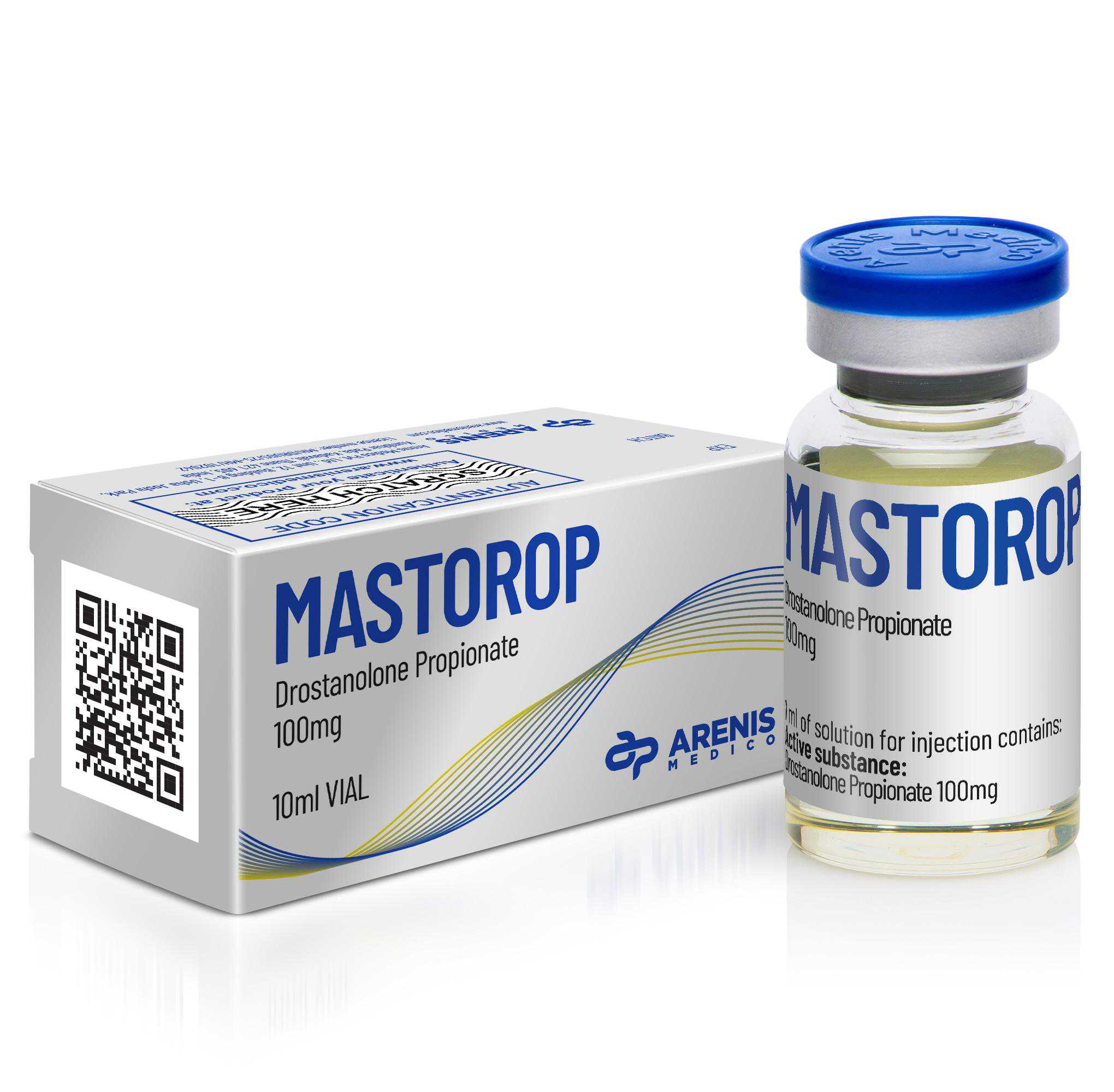Mastorop — 100mg Drostanolone Propionate
Mastorop (Drostanolone Propionate) is an injectable anabolic steroid derived from dihydrotestosterone (DHT).
Mastorop (Drostanolone Propionate) is highly favored by athletes for its ability to produce solid increases in lean muscle mass and strength, which are usually accompanied by reductions in body fat level and minimal side effects.
Estrogenic Side Effects
Mastorop (Drostanolone Propionate) is not aromatized by the body, and is not measurably estrogenic. An anti-estrogen is not necessary when using this steroid, as gynecomastia is very rare even among sensitive individuals.
Mastorop (Drostanolone Propionate) as a non-aromatizable DHT derivative, may impart an anti-estrogenic effect, the drug competing with other (aromatizable) substrates for binding to the aromatase enzyme.
Androgenic Side Effects
Although classified as an anabolic steroid, androgenic side effects are still common with this substance, especially with higher doses. This may include bouts of oily skin, acne, and body/facial hair growth.
Anabolic/androgenic steroids may also aggravate male pattern hair loss.
Women are also warned of the potential virilizing effects of anabolic/androgenic steroids. These may include a deepening of the voice, menstrual irregularities, changes in skin texture, facial hair growth, and clitoral enlargement.
Hepatotoxicity Side Effects
Mastorop (Drostanolone Propionate) does not have hepatotoxic effects and therefore, liver toxicity is unlikely.
Cardiovascular Side Effects
Anabolic/androgenic steroids can have deleterious effects on serum cholesterol. This includes a tendency to reduce HDL (good) cholesterol values and increase LDL (bad) cholesterol values, which may shift the HDL to LDL balance in a direction that favors greater risk of arteriosclerosis.
The relative impact of an anabolic/androgenic steroid on serum lipids is dependant on the dose, route of administration (oral vs. injectable), type of steroid (aromatizable or non-aromatizable), and level of resistance to hepatic metabolism.
Anabolic/androgenic steroids may also adversely affect blood pressure and triglycerides, reduce endothelial relaxation, and support left ventricular hypertrophy, all potentially increasing the risk of cardiovascular disease and myocardial infarction.
Mastorop (Drostanolone Propionate) is likely to have a less dramatic impact on cardiovascular risk factors than synthetic oral anabolic steroids.
To help reduce cardiovascular strain, it is advised to maintain an active cardiovascular exercise program and minimize the intake of saturated fats, cholesterol, and simple carbohydrates at all times during active steroid administration. Supplementing with fish oils and a natural cholesterol/antioxidant formula is also recommended.
Testosterone Suppression
All anabolic/androgenic steroids are expected to suppress endogenous testosterone production. Testosterone is the primary male androgen, and offers strong negative feedback on endogenous testosterone production.
Testosterone-based drugs will, likewise, have a strong effect on the hypothalamic regulation of natural steroid hormones. Without the intervention of testosterone-stimulating substances, testosterone levels should return to normal within 1-4 months of drug secession.
Note that prolonged hypogonadotrophic hypogonadism can develop secondary to steroid abuse, necessitating medical intervention.
Administration for Men
It is most commonly used at a dosage of 200 – 400 mg per week. The dosage schedule can be further divided to reduce the volume of each injection if necessary, perhaps administering the drug three times per week. One should also take caution to rotate injection sites regularly, so as to avoid irritation or infection.
The positive effects of this drug become most apparent when it is used for longer cycles, usually lasting 8-12 weeks or more in duration.
Mastorop (Drostanolone Propionate) is a very versatile drug, and can be combined with a number of other agents depending on the desired result.
Administration for Women
It is most commonly used at a dosage of 50 – 100 mg per week. Due to the short-acting nature of propionate ester, the dosage schedule is usually further divided to reduce the volume of each injection if necessary, perhaps administering the drug ttwo to hree times per week. One should also take caution to rotate injection sites regularly, so as to avoid irritation or infection.
The positive effects of this drug become most apparent when it is used for longer cycles, usually lasting 8-12 weeks or more in duration.
